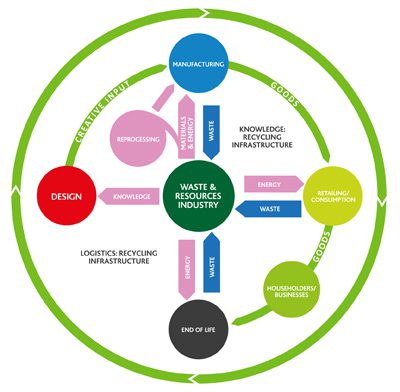
The Environmental Services Association, the voice of the UK’s resource and
waste management industry, has set out a number of recommendations to more closely align the
planning system with the strategic objectives of the Circular Economy.
There is significant scope to improve the planning culture within many local authorities to give the
industry the flexibility it needs to adapt to the new, sustainable business models shaped by the Circular
Economy.
ESA’s new report, Planning for a Circular Economy outlines key aspects of the planning regime which can
often frustrate the industry’s efforts towards this aim.
ESA’s Policy Advisor, Stephen Freeland said:
“Many local authorities need to let go of the strict control culture that has prevailed in one
form or another since the ‘landfill era’ and instead adopt a more responsive approach to
planning for waste management which better recognises the variable and dynamic nature of
the space in which our industry now operates. Our industry increasingly resembles that of any
other logistics business with materials moved around as markets dictate.
Few other sectors face the same planning and political obsession about the origin of material
or commodities, and where these should be transported to. To hamstring the resource and
waste management industry in such a way will likely hamper investment and progress towards
the objectives of the Circular Economy”.
The new report will be available from the ESA website – www.esauk.org/esa_reports/







